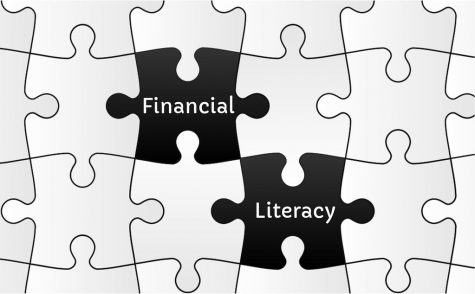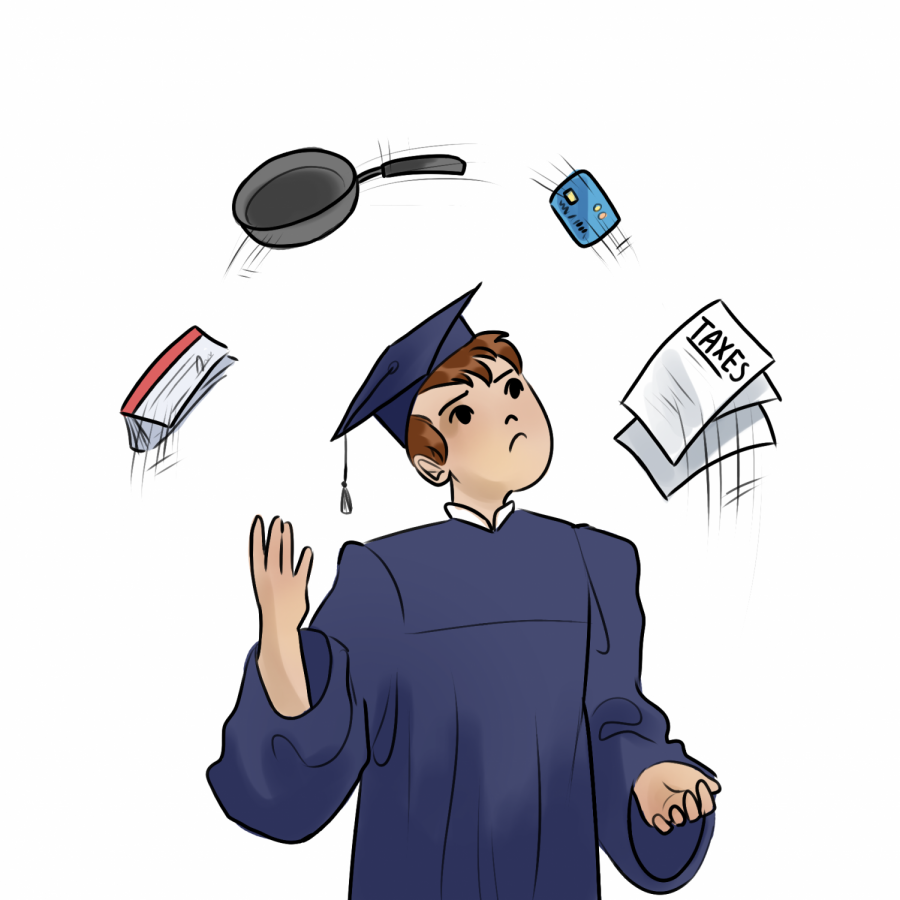Schools lack necessary real-world lessons
Students are pressured to know real-world skills without learning them in school.
April 9, 2020
Richard Montgomery offers courses in a diverse range of subjects, including creative writing, anatomy and Latin. However, some students believe RM should offer more classes in “real-world” skills.
“Real-world skills” can describe a vast amount of activities that people will likely need as adults. They include cooking, driving, nutrition, civics and, of course, bills and taxes.
Out of all the courses that could be taught at school, many students wish that a financial literacy course was one of them. Such a course would help them learn how to manage personal finance matters, such as investing, getting insurance and budgeting .“[I think schools should teach] taxes, financing and how to like, balance budgets because that’s all stuff we’re going to need to use, and I have no clue how to do any of it,” junior Kendal Mackison said.
Not only students feel this way. Many teachers also share the same sentiment about financial literacy. “I think skills that might have been useful to learn are things like how to budget. So, budgeting time, and budgeting resources, I think those are the two things that I really wish I had learned [in high school],” science teacher Eleanor Park said.
Math teacher Steven Kuhn said, “Absolutely, absolutely [RM should have a financial literacy course], and maybe I’ll try to spearhead that.”
According to the S&P Global Financial Literacy Survey, 43 percent of adults in the U.S. are financially illiterate. This means they lack the knowledge and skills to effectively manage their financial resources, in the short term and the long term. However, this number compares well to the rest of the world, as worldwide the financial illiteracy rates are 67 percent.
Still, states across the country are attempting to lower that percentage by teaching financial literacy in schools in one way or another. 21 states now require students to take a course in personal finance.
The state of Maryland does not require a personal finance course for graduation, but it does require personal finance concepts to be taught, leaving the specific form that should take to each individual district. Some districts require stand-alone financial literacy classes, while others require that personal finance concepts are incorporated into already-existing classes. In Montgomery County, middle schools work with Junior Achievement, a global non-profit dedicated to educating students on financial literacy, to teach all seventh graders financial skills in a three-week course.
The program does not continue into high school, however, and some students wish there were more opportunities for them to learn about finances. “I know that there’s Quantitative Literature, but that definitely won’t fit into my schedule, and it’s unfortunate that I can’t get the benefits of that class at least for a quarter or something. I wish mathematically [those skills] are integrated more into our curriculum,” senior Lambia Katsigiannakis said.
Quantitative Literature is a class offered at RM that teaches students about the application of math in decision making, the mathematics of starting a business and the math around things such as investments and loans. “[The concepts taught in it are] concepts that you will find in any business major in college and in introductory MBA programs, so it is really good prep for going into college and certainly very good prep for going out into the real world,” Mr. Kuhn said.
In addition to understanding and managing money, some students believe that it would be valuable for all students to learn how to apply and interview for jobs in school in order to make that money. “If they’re preparing us for a job, they should teach us how to get it,” freshman Ash McClintock said.
A student who is going through the process of finding a job agrees. “I’m looking for a job right now. I’ve had a few interviews, but I’ve kind of had to figure out all on my own how to do that, and so if there was someone there to teach me, that would be great,” Mackison said.
Although it can seem like a small amount of what schools teach is preparation for the real world, that may not entirely be the case. Some may find that there are more subtle real-world skills being taught. “Actually all the math classes, believe it or not, are real-world skills because in algebra [and] geometry, when you learn slope, if you’re going to go out and [be a] carpenter, roofing, all of that requires the geometry, requires the algebra, so everything you do in math is, believe it or not, real world,” Mr. Kuhn said.

Many students feel like they do not have sufficient financial literacy skills for the real world.


